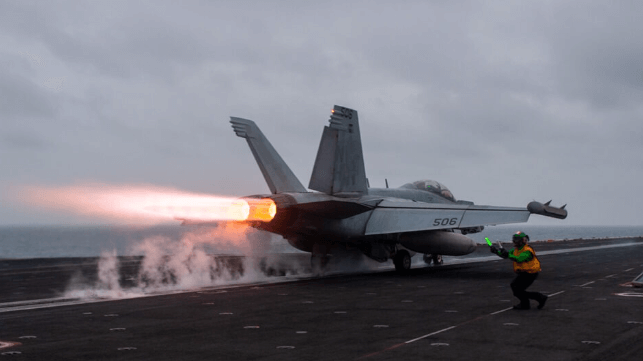Pentagon Extends Deployment of Second Carrier to Deter Iran

In an attempt to keep tensions between Iran and Israel from boiling over into large-scale conflict, the Pentagon has extended the deployment of the carrier USS Theodore Roosevelt, which is operating alongside the USS Abraham Lincoln in the U.S. Central Command area of responsibility. The "plus-up" of a second carrier increases the amount of combat capabilityavailable to respond if Iran decides to carry out a missile or drone strike on Israeli territory.
"The additional forces in the theater send a very clear message to all actors in the region that we're serious when it comes to supporting the defense of Israel, as well as protecting our forces should they be attacked," Pentagon Press Secretary Maj. Gen. Pat Ryder told media on Monday.
The latest cycle of Mideast tensions began with two high-profile Israeli assassination operations last month. In response to Hamas' attack on Israeli citizens in October 2023, the Israeli government opted to assassinate top Hamas official Ismail Haniyeh, who was staying in a secure guest house in Tehran. The targeted killing angered Iranian leadership, which was hosting Haniyeh, and the Islamic Revolutionary Guard Corps, which operated the guest house. The Israeli Air Force also killed top Hezbollah military leader Fuad Shukr in a targeted airstrike in Beirut on July 30.
On Sunday, in anticipation of a large-scale retaliatory attack, Israeli forces carried out a preemptive strike targeting about 40 Hezbollah positions within Lebanon. According to Israel's military, the strike destroyed thousands of Hezbollah rocket launcher tubes positioned near Lebanon's southern border. Hezbollah said that it responded by launching about 300 rockets into northern Israel.
One Israeli Navy sailor was killed in the operation Sunday, the service confirmed. According to Israeli media accounts, the fatality occurred during the intercept of a Hezbollah airborne drone near the Lebanese maritime border.
The Pentagon denied direct U.S. involvement in the attack on Hezbollah's positions.
"We provided some intelligence, surveillance and reconnaissance support, [or] ISR, in terms of tracking incoming Lebanese Hezbollah attacks, but did not conduct any kinetic operations as they were not required," Ryder told media. "I can't emphasize enough that we are not seeking any type of escalation in the region. The opposite, in fact."
